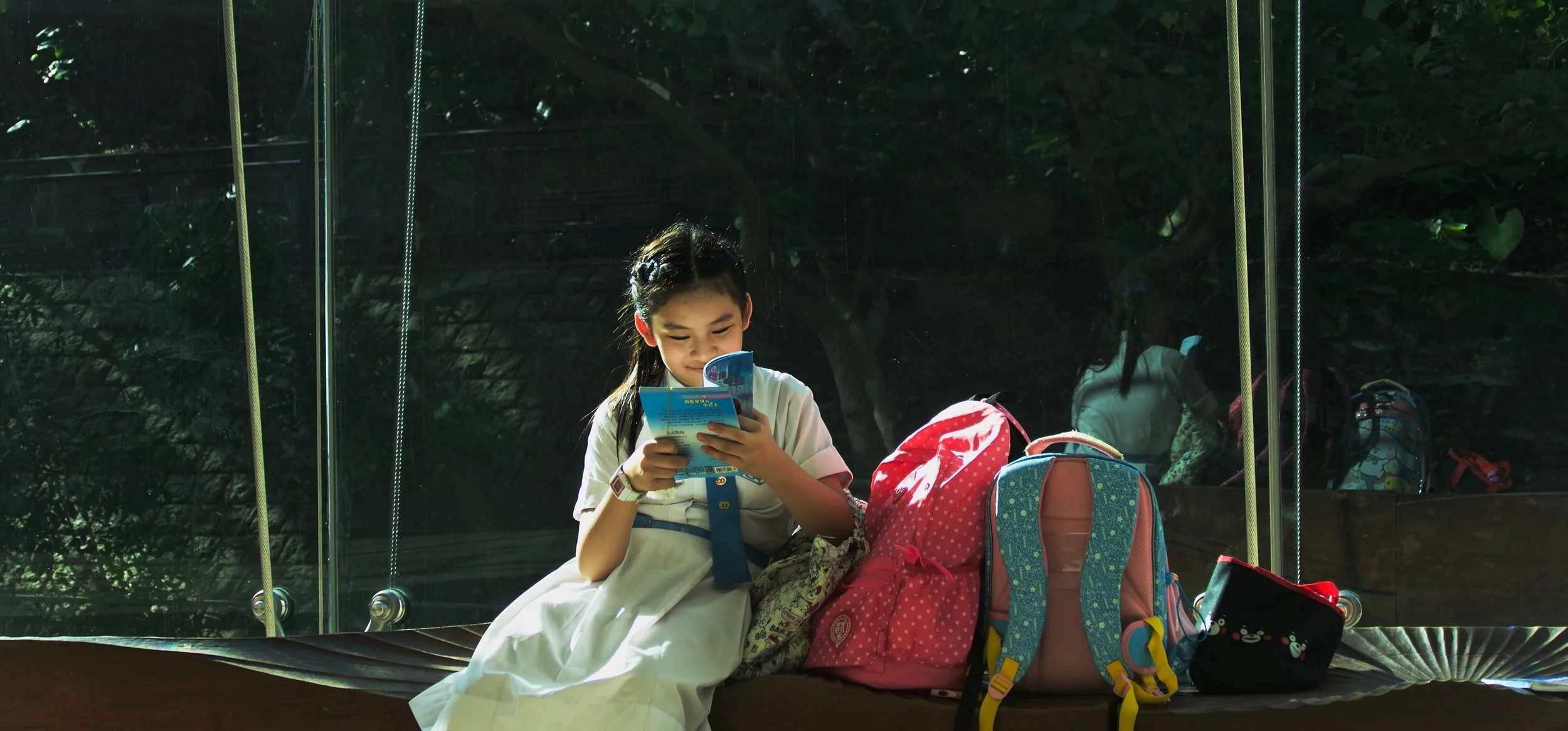Depending on where you live, school has been back in session now for a month or two. Maybe it already seems like ages ago that you snapped that cute photo of your child holding a sign announcing their new grade and teacher’s name.
By this point in the year, many children are already fully immersed in standardized testing practice, project deadlines, extracurricular activities, and other school happenings that can be both exciting and stressful. Ok…maybe more stressful, and less exciting. Possibly very stressful. Today, let’s talk about what you can do when Monday mornings have become a source of dread. Here are 3 ways to help your child manage school anxiety!
Anxiety About Going to School…In October?
I see many kids begin to struggle with school anxiety in late fall. By this point in the year, the novelty of being back at school has worn off, and the daily routine has fully set in. Big class projects and tests are in full swing. Even kids who were a little excited to return to school in September may be dreading it by October or November.
While it’s normal for most children to feel hesitant to get on the school bus occasionally, or to have a tough time waking up in the morning, some children’s worries about going back to school become so overwhelming that it interferes with their attendance in class. If you’re wondering whether your child’s anxiety about school has reached a level where therapy might be helpful, here are a few questions to consider:
How often is the anxiety happening? For example, is it just on Monday mornings following a weekend away, or is it becoming an everyday occurrence?
Is your child complaining of physical symptoms, like headaches, stomach aches, or vomiting, that only seem to occur on school days?
Is your child’s anxiety response getting stronger or weaker as the school year progresses?
Have your child’s worries escalated to the point that tantrums or intense fearfulness are keeping him from being able to attend class?
If you found yourself answering “yes” to a couple of these questions, you are not alone! School is an extremely important, formative part of a child’s life, but the day-to-day experience of attending school can be stressful even for bright, resilient children. The increased focus on standardized testing and the added peer pressure of social media don’t make the experience any easier. Keep reading for a few tips on how to handle school anxiety.
School Anxiety Tip #1: Teach Relaxation Skills for Back-to-School Stress
Simple techniques that use the breath or senses to soothe anxiety can be used almost anywhere, and are easy enough that even young children can master them. Teaching your child to take slow, deep belly breaths (called diaphragmatic breathing) can be helpful, as well as helping your child to practice tensing and relaxing the muscles of the body, starting at the head and moving down toward the feet (called progressive muscle relaxation). It’s best to practice these skills repeatedly while the child is feeling calm. That way, the next time she is feeling anxious or panicked, she knows just what to do.
If these relaxation techniques work well for your child and you’d like to learn more of them, check out my coping skills courses for kids. These educational courses give kids tools they can use right away to manage big feelings like anxiety, anger, and stress. They also include a guide for parents, so you can help your child make the most of their coping skills at home.
School Anxiety Tip #2: Read Books that Tackle School-Related Worries
In therapy-speak, we refer to using books in the counseling process as bibliotherapy. Reading a book with your child can be a great way to gently open up a conversation about a topic. Children may feel less nervous or threatened talking about their school worries when the conversation is focused on a fictional character, rather than themselves. A good story can add some much-needed humor to a scary situation, while also helping children feel less alone with their fears.
Two of my favorite books about school for young children are School’s First Day of School by Adam Rex, which tells the story of a first day in Kindergarten from the perspective of a school building, and The Pigeon HAS to Go to School, from Mo Willem’s popular series for kids. Neither one feels overly “therapy-y”, but the plotlines are reassuring and empowering. They’re interesting enough stories that kids stay emotionally invested throughout.
School Anxiety Tip #3: Keep Class Attendance Consistent (Even When It’s Hard)
This is the hardest advice to follow, but it might be the most important! When a child is in extreme distress about attending school, it is very tempting to diffuse the situation by allowing her to stay home and relax. Taking an occasional mental health day is not likely to cause problems for most children. However, for kids with severe school anxiety, taking days off is virtually guaranteed to make anxiety worse over time.
By avoiding the anxiety-provoking situation, we are alleviating a child’s fears for the moment, but also sending a message to the child’s anxiety response that school is worth being afraid of. The next day, the child may find it is even more difficult to get back to class. Helping children face their fears is the best way to combat anxiety about going back to school.
Middle School Is Tough, But Your Child Is Tougher. Therapy Can Help With Back-to-School Anxiety!
If you’d like more information on how to support a child struggling with back-to-school anxiety, feel free to reach out to me. Counseling that utilizes play therapy and cognitive-behavioral techniques can be a big help in reducing anxiety about school for children who are really struggling. You can reach me directly by filling out this form to inquire about how therapy might be helpful for your child. I can help families living in North Carolina, New York, or Florida through online therapy.
Not living in one of those states, or not ready for counseling? For some kids, learning effective and easy-to-use coping skills can be enough to break the cycle of back-to-school anxiety. My educational course, Worry Free Tweens, is designed especially to help middle school or late elementary-aged kids learn how to overcome anxiety. Kids walk away from the course with a better understanding of how anxiety works, and how they can control their worries—both now and as they grow up.
Good luck, and may this school year be your best one yet!




